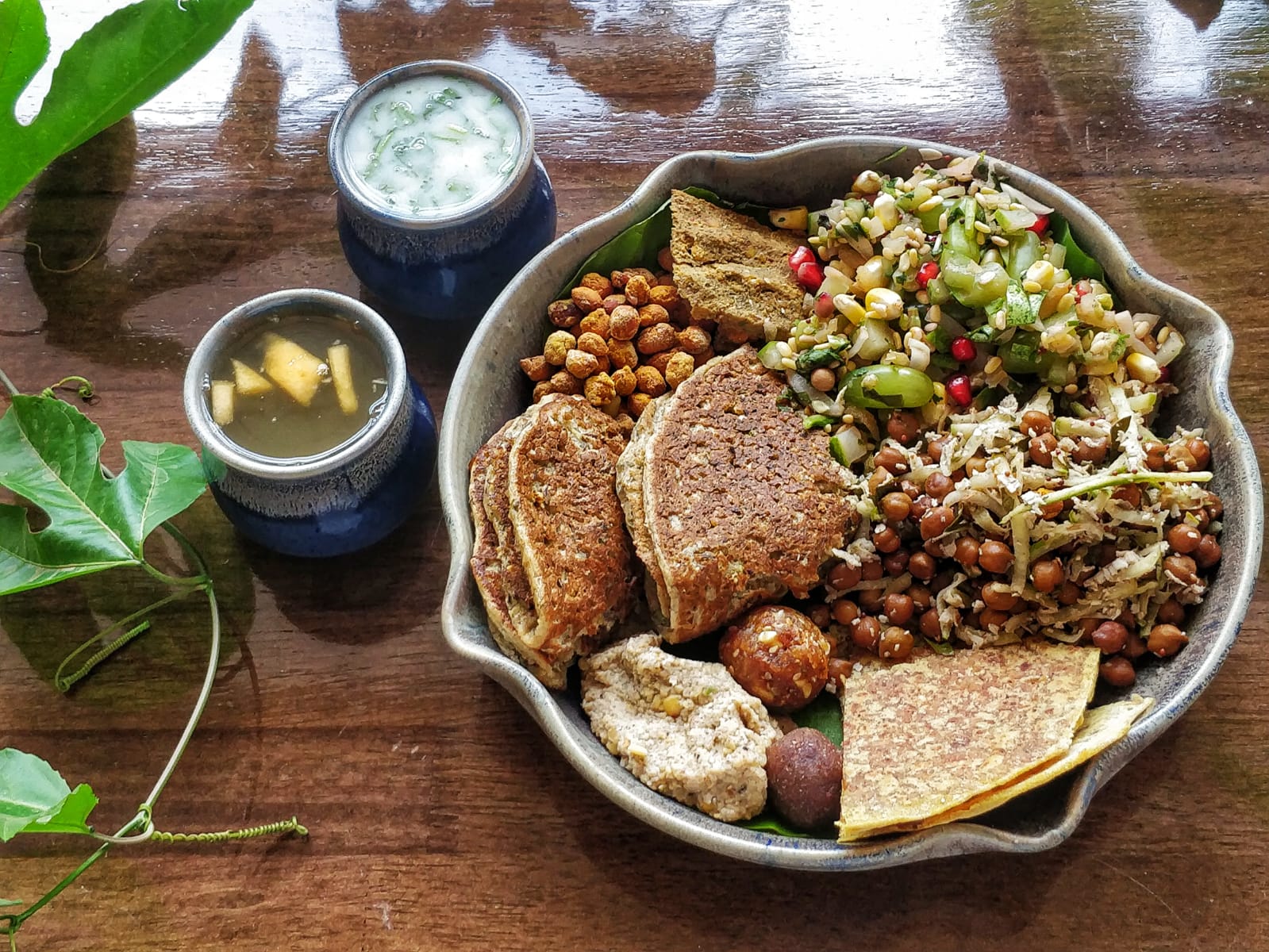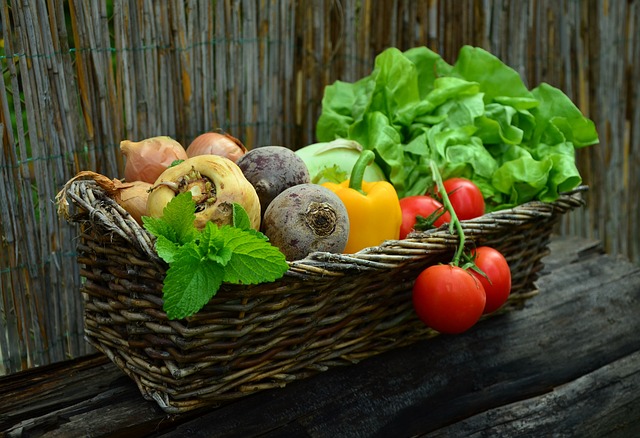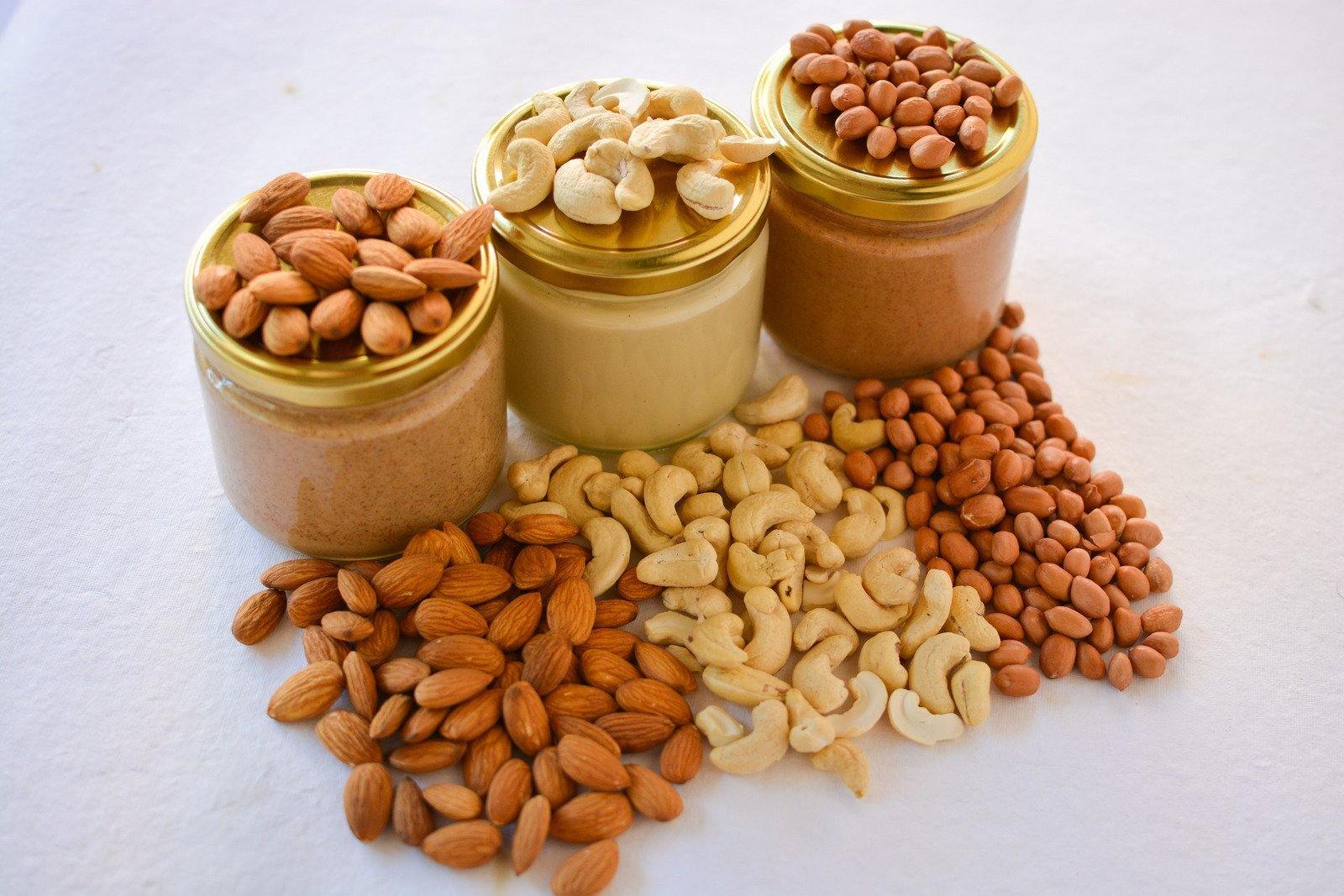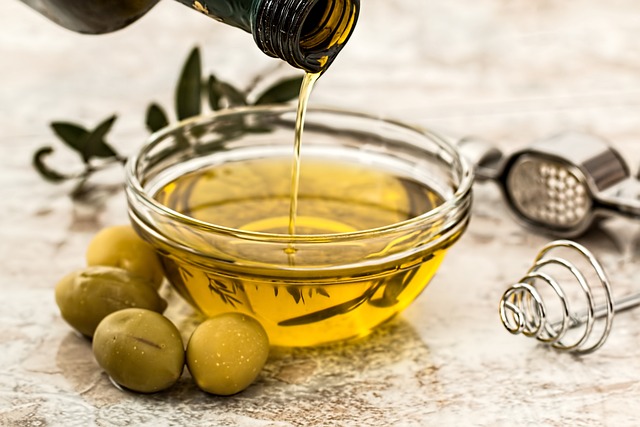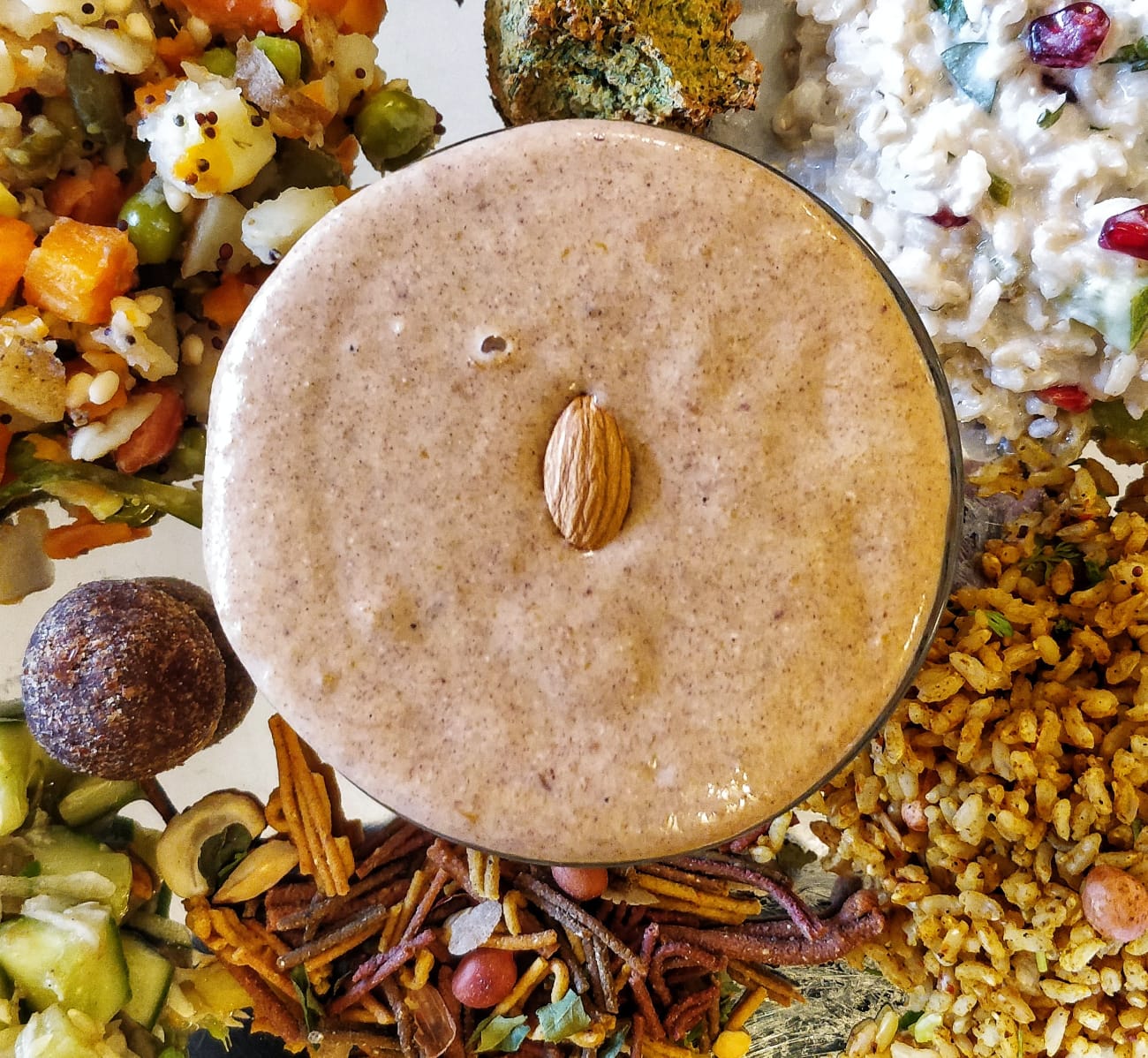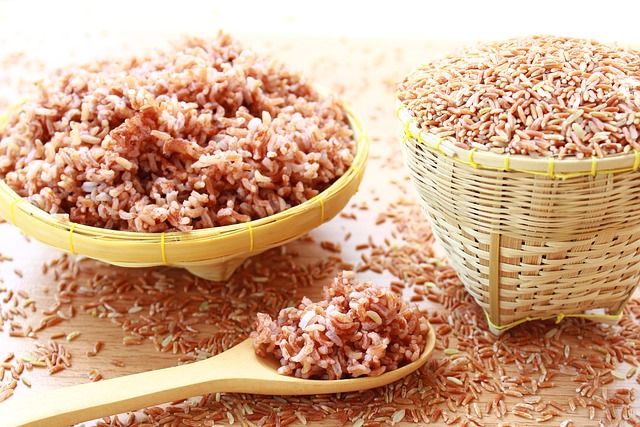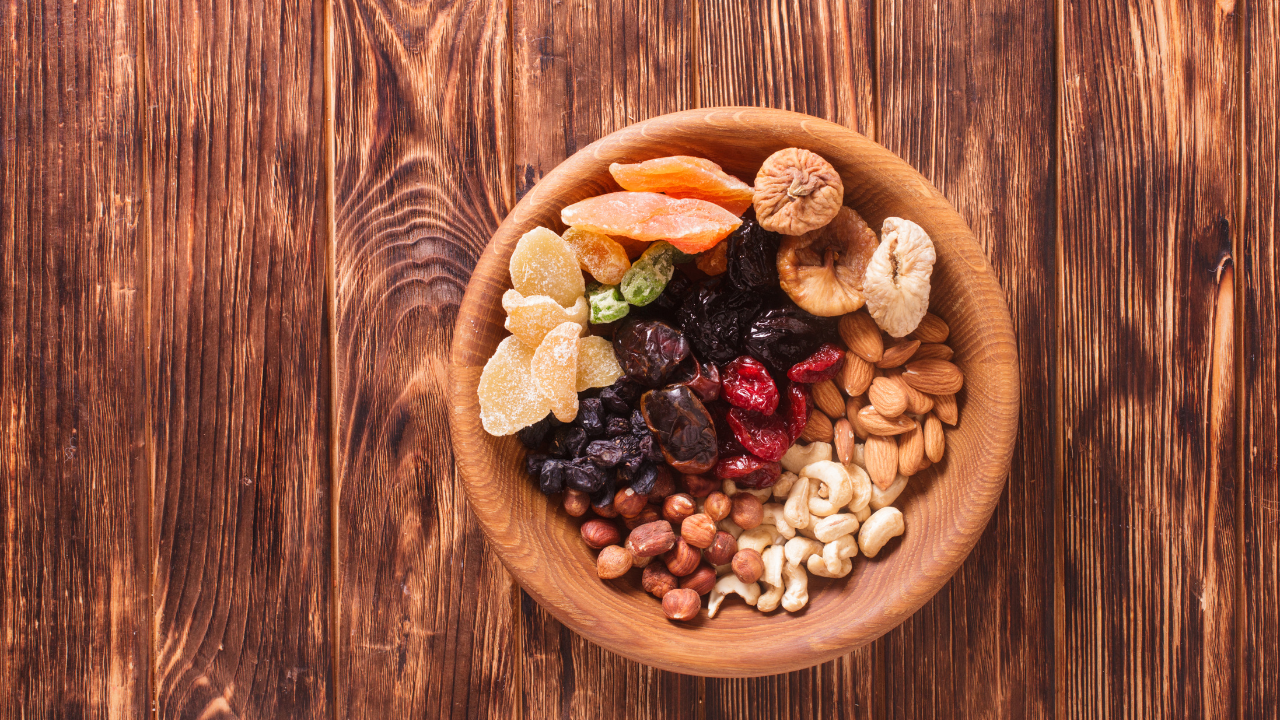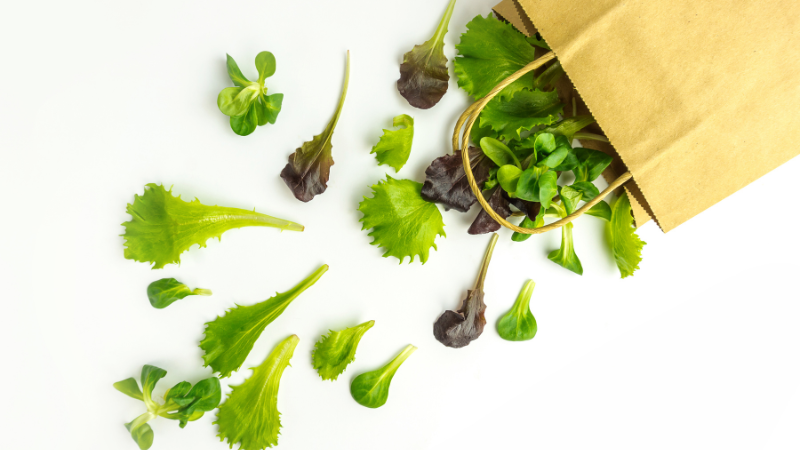Are you looking to make a positive change in your diet and overall health? Consider adopting a whole food plant-based diet! This way of eating focuses on mainly consuming fruits, vegetables, legumes, whole grains, nuts, and seeds while minimizing or eliminating processed foods, dairy foods, and other animal-derived foods. A healthy vegan diet that is not only is it good for your health, but it's also environmentally sustainable.
Starting a whole food plant-based diet may seem daunting at first, but don't worry - it's easier than you think. By learning the basics of cooking with whole food plant-based ingredients, getting the right tools and cookbooks for ideas, trying out new recipes, and understanding the health benefits of this lifestyle, you'll be on your way to enjoying tasty and healthy meals that make you feel good. So let's get started!
What is a Whole Food Plant-Based Diet?
Do you want to know what a whole food, plant-based diet is? Well, it's all about filling your plate with foods that come straight from the earth and leaving out processed junk, food from animal sources, and other harmful foods.
Plant-ased eating means you get to enjoy all your favourite dishes from bisi bebe bath to pasta made with wholesome ingredients without compromising on your health. A whole food plant-based diet is rich in all essential nutrients like vitamins, minerals, antioxidants and amino acids your body needs to function optimally.
Healthy vegan diets have often been associated with boring, bland meals! This is far from the truth. You don't need animal products or processed ingredients to whip up a delicious meal. There are a wide variety of foods to choose from, and plenty of delicious recipes out there use only plant-based ingredients. You can even easily modify what you eat on a vegetarian diet to make it whole food plant based without anyone even finding out about it.
You can make hearty stews packed with beans and veggies, cook up dals, gravies, rotis, parathas, dosas, or whip up a fresh salad loaded with colourful produce with plant foods. The key is experimenting with different flavours and textures until you find what works for you.
Adopting a whole food plant-based diet can do wonders for your health. Studies have shown that a diet rich in plant foods can lower your risk of Type 2 diabetes, high blood pressure, heart disease and certain types of cancer.
Plus, since you're catting out processed foods and focusing on whole plant foods instead, you'll likely have better energy levels throughout the day. So why not give it a try? Your taste buds (and body) will thank you!
Now that you know what a whole food plant-based diet is, let's talk about how to start this healthy lifestyle change.
How to Get Started?
To get started on a whole food plant-based diet, you need to add more healthy vegan foods like fruits, vegetables, lentils and whole grains to your meals. You can reduce, and eventually eliminate animal-based foods including dairy products from your diet.
Simultaneously minimize processed foods such as oil, refined sugar, and grains for optimal health benefits. By following these tips, you can adopt plant-based eating by making practical changes to your eating habits that are evidence-based and holistic.
Add Healthy Foods like Fruits, Vegetables, Lentils & Whole Grains
It's always easier to add healthy foods to your diet first rather than cut out unhealthy foods. HEre's how you can get started.
Incorporate plenty of fruits, vegetables, lentils, mixed greens, nuts and seeds, herbs and spices, whole grains and even mushrooms into your meals fora healthy plant-based diet that meets all your nutritional requirements. These foods are packed with essential nutrients like fibre, vitamins, and minerals that are important for maintaining good health.
- Fruits are delicious sources of fiber and antioxidants and make for great snacking options. If you live in a tropical country like India, you can benefit from enjoying local and seasonal fruits like sapota, mango, pineapple, jackfruit, grapes, fresh berries, banana, watermelon, papaya and so many more.
- Vegetables like broccoli, spinach, and kale are excellent sources of iron and calcium. Include a wide variety of gourds like snake gourd, bitter gourd, ash gourd; root vegetables like yam, sweet potatoes, colocasia; cruciferous vegetables like cauliflower, cabbage, radish, knol kolh in your daily diet.
- Lentils are a great source of protein that can be added to soups or stews. Traditional Indian diets have several dal recipes that incorporate lentils. All you have to do is look up some of these recipes and make them a regular part of your diet. Whole grains such as millets, brown rice, red rice, black rice, and whole wheat can be used in place of refined grains like white rice, maida, rava, semiya and products made with these ingredients.
To make your plant-based diet even more nutritious and satisfying, try experimenting with different herbs and spices to add flavor to your dishes. You can also swap out processed and deep fried snacks with healthy baked oil-free murukku, kodubale, potato crisps, pita crunchies and more. These snacks are delicious sources of healthy whole grains and millets while offering the satisfaction of a tea time snack!
By incorporating these healthy foods into your meals on a regular basis, you'll be well on your way to achieving optimal health.
Reduce and Cut Out Animal Based Foods, Including Dairy
This may be the harder part for many of you. However, once you start adding healthy foods, you'll find that you have automatically reduced consuming low quality processed foods and animal foods.
If you're looking to improve your overall health, it's time to consider reducing and cutting out animal-based foods, including dairy. Diets rich in plant foods have been shown to offer numerous health benefits, such as weight loss, optimal blood pressure, and a decreased risk of chronic diseases like cardiovascular disease and diabetes. Not only that, moving to a healthy plant-based diet has also shown to improve blood cholesterol levels, cardiovascular health, blood sugar levels among others and get you closer to your health goals.
- Try swapping out meat dishes for plant-based meat alternatives. Use plant-based meat alternatives as transition foods - something that is a stepping stone to more healthy alternatives like jackfruit, yam, mushrooms, tempeh, etc. Plant-based meat alternatives are processed foods, but many of them are healthier for you than animal foods.
- Replace dairy milk with plant-based alternatives. For example, instead of having one type of milk - milk from cows, you can now enjoy several types of plant-based milks, each with their own unique texture, nutrition and flavour. Almond milk, coconut milk, peanut milk, soya milk cashew milk, til milk, oat milk, rice milk are just a few examples. Just ensure that you don't filter out the fiber if you're making the milk at home.
- Enjoy a wide range of plant-based butters like peanut butter, almond butter, coconut butter, cashew butter and more instead of dairy butter to add creaminess and richness to your daily dishes while also being a source of good fat.
- Tofu is a wonderful replacement for paneer and you can make plant based creams, cheese spreads, curds with a wide array of whole grains, legumes, nuts and seeds.
Ensure that your plant-based milks, butters, curds, cheeses and creams are made with whole plant ingredients. That they are oil-free, sugar/jaggery/honey-free and free of animal-based ingredients. Ensure that they are fiber rich as well.
Check out delicious and healthy whole food plant based diary replacement options by Sampoorna Ahara to get your hands on healthy alternatives that will save your time and effort.
Reduce and Cut our Processed Food Including Oil, Refined Sugar, Grains
Cutting out processed foods can be a tough nut to crack, but it's worth it if you want to improve your health and well-being on a plant-based diet.
Here are five tips to help you reduce and cut out processed foods from your meals:
- Cook with whole food ingredients: Instead of pre-packaged meals or snacks, try cooking with whole grains, fruits, vegetables, beans, nuts and seeds.
- Read food labels: Be aware of the ingredients in your packaged foods. Avoid those that contain added oil, refined sugar and refined grains.
- Meal prep: Plan ahead by preparing simple recipes in large batches for easy grab-and-go options throughout the week.
- Get creative with spices: Experiment with different spices and herbs to add flavour to your meals without relying on processed sauces or seasoning packets.
- Swap unhealthy snacks for healthier ones: Replace chips or candy with fresh fruit, veggies with hummus or homemade trail mix.
- Learn oil-free whole food plant based cooking
By reducing and cutting out processed foods like oil, refined sugar and grains from your plant-based diet, you'll improve your overall health and feel more energized.
Learning the basics of whole food, plant-based cooking can make this transition easier as you become more familiar with using fresh ingredients creatively.
Learn Basics of Whole Food Plant Based Cooking
If you're looking to adopt a whole food plant-based diet, learning the basics of cooking without dairy and oil is important.
- Try using healthy alternatives like almond milk or cashew cream, for creaminess in recipes.
- Learn oil-free cooking methods like sautéing without oil, boiling, steaming, roasting, baking.
- Use healthy sweeteners such as dates and dry fruits instead of refined sugar.
- Swap out refined grains for whole grains to increase fibre and nutrients in your meals.
You can now learn how to cook and bake without oil, sugar, refined grains, eggs and other animal-products. What's more? you can do this from the comfort of your home. Sign up now from anywhere in the world and learn from experts!
Dairy Alternatives
Following a plant-based diet, you can easily swap out dairy products for delicious and healthy alternatives. Dairy is often used in cooking and baking, but there are many plant-based options that can be used instead.
- Use plant-based milk such as almond, soy, oat, or coconut milk in place of cow's milk. They are great substitutes for recipes like smoothies, cereal bowls, or even baked goods.
- Vegan cheese made from nuts or soy can be used in dishes like pizza or grilled cheese sandwiches.
- Nut butters like peanut butter, almond butter, cashew butter are great alternatives to make your dishes rich and creamy
- Non-dairy yogurts made from coconut, soy, peanut, almond milk are great options for breakfast bowls, as a snack paired with fruit and granola, for curd rice, mor kozhambu, buttermilk and other delicious dishes
Check out delicious and healthy whole food plant based diary replacement options by Sampoorna Ahara to get your hands on healthy alternatives that will save your time and effort.
Oil-free Cooking
To cook without oil, try using techniques like boiling, baking, roasting, steaming, and sautéing with vegetable broth or water instead. By avoiding oil in your cooking, you can reduce the amount of saturated fat in your meals and promote a healthier heart.
Here are some tips to help you get started on your plant-based oil-free cooking journey:
- Roast vegetables by placing them on a baking sheet lined with parchment paper and sprinkle spices like garlic powder or paprika for added flavour.
- Steam vegetables by placing them in a steamer basket over boiling water until they're tender yet still crisp.
- Sauté vegetables by heating vegetable broth or water, in a cast iron tawa/steel/ clay/ stone utensils and adding chopped onions, garlic, and other seasonings before adding diced veggies.
By incorporating these techniques into your cooking routine, you can create delicious plant-based meals that are both healthy and flavourful.
Using Healthy Sweeteners
You've learned about the importance of oil-free cooking in your plant-based diet, and now it's time to talk about sweeteners. Sugar is the most popular and widely used sweetener that is used world over. You may know it's not healthy, but you just can't seem to stop eating it.
- Sugar causes a blood sugar spike and has been associated with a wide range of chronic lifestyle diseases.
- Artificial sugar substitutes have also been associated with an increased risk of cancer, stroke among other.
- Natural sweeteners like jaggery, honey, maple syrup, coconut sugar also have a similar effect on your blood sugar levels as refined sugar and are best avoided.
- Replace refined sugar with dry fruits, fresh fruits, molasses, stevia, unfiltered date syrup, monk fruit, date sugar and vegetables like sweet potatoes and beetroots.
Learn more about the pros and cons of various sweeteners in this detailed blog
Using Whole Grains instead of Refined Grains
Switching from refined to whole grains is an effective way to make your plant-based diet more nutrient-dense and wholesome.
- Whole grains are packed with fiber, vitamins, and minerals essential for optimal health.
- Refined grains have been stripped of their nutrients during processing, leaving behind a product that lacks the nutritional value of whole grains.
- Whole grain options include millets, brown rice, red rice, quinoa, black rice, whole wheat, oats, barley. These grains can be used in a variety of dishes and can replace white rice and maida.
By incorporating whole grains into your meals regularly, you will not only increase the nutritional value of your diet but also enjoy delicious and satisfying meals that keep you feeling full for longer periods of time.
Kitchen Essentials for Whole Food Plant Based Cooking
You might be wondering what kitchen essentials you need to make delicious and healthy whole food plant based meals. These healthy grocery must-have will not only make your life easier but also enhance the flavour and variety of dishes you eat. Having a dynamic grocery list with these healthy grocery must-haves as staples is the perfect balance.
Nut butters are a great source of protein and healthy fats, while plant-based curds can add a tangy flavour to your dishes. Tofu is versatile and can be used in stir-fries, salads, or even desserts. Remember, unfiltered dates syrup as a natural sweetener and healthy whole grain breads for your sandwiches or toast.
Nut Butters
If you're a fan of creamy and nutty flavours, incorporating nut butters into your plant-based meals is a delicious way to add protein and healthy fats.
- Nut butters are versatile and can be used in various recipes, such as smoothies, dressings, dips, or even baked goods. They're also a great source of vitamins and minerals like vitamin E, magnesium, and potassium.
- When choosing nut butter for your plant-based diet, look for options that contain only nuts and possibly sea salt as an ingredient. Avoid those with added sugars or oils.
- Almond butter is a nutritious option with a slightly sweet taste, while peanut butter is more affordable and has a stronger flavour. You can also try other types, like cashew butter, hazelnut butter and more, for some variety in your meals.
If you are having a hard time choosing between nut butters, you can a triple treat by opting for Sampoorna Ahara's nut butter bundle and relish the flavour of almond butter, peanut butter and cashew butter!
Plant Based Curds
Incorporating plant-based curds into your meal plan is a tasty way to add a creamy texture and tangy flavour to dishes.
As a beginner in the world of plant-based diets, it's essential to have versatile ingredients on hand that can be used in many recipes.
- Plant-based curds made from nuts or soybeans are an excellent option for adding creaminess to sauces, dips, and dressings.
- Plant-based curds also offer some health benefits as they are typically lower in fat and calories than dairy-based options. They are also rich in protein, fibre, vitamins, and minerals.
- There are wide range of plant-based curds you can have. From soy curd to rice curd, seed curd, almond curd, cashew curd, peanut curd, melon seed curd and more, the options are plenty.
You can get your curd cravings covered by opting for Sampoorna Ahara's Soy and Almond curds, which is a mixture of soy and almond milk and set it with our inhouse culture for a probiotic boost!
Experiment with different flavours and textures until you find the perfect match for your taste buds!
Tofu
Tofu is a versatile ingredient can be used in so many ways it may just become your new go-to!
- Tofu is made from soybeans and an excellent plant-based protein source. It's also low in fat and calories, making it a healthy addition to any plant-based eating plan.
- Tofu can be used as a substitute for meat in many plant-based recipes, such as stir-fries, curries, and even burgers. You can also puree tofu into smoothies or use it as a base for dips and spreads.
- You can easily switch over from paneer to tofu, by getting your Fresh Tofu subscription from Sampoorna Ahara. Our tofu is soft and does particularly well in Indian dishes.
With so many vegan options available nowadays, you don't have to sacrifice flavor when choosing healthy plant-based diets. So next time you're looking for an easy way to incorporate more protein into your meals, consider adding some tofu!
Unfiltered Dates Syrup
This natural sweetener is a great alternative to refined sugar and artificial sweeteners. It has a rich caramel-like flavor that can enhance the taste of your dishes while also providing essential nutrients such as potassium, magnesium, and fiber.
- To use unfiltered dates syrup in your cooking, simply substitute it for sugar or honey in recipes such as smoothies, baking, marinades, dressings, and more. You can also drizzle it over pancakes or oatmeal for a nutritious breakfast option.
- With its low glycaemic index and high nutritional value, this sweetener is perfect for those looking to maintain a healthy plant-based diet without sacrificing taste.
- It's so easy to make your own unfiltered date syrup. With it being so rich and delicious, this fruit-based sweetener is perfect for all kinds of desserts.
Healthy Whole Grain Breads
If you want to add more fiber and nutrients to your bread, consider choosing whole grain options. Whole grains are great for a plant-based diet as they offer numerous health benefits such as reducing the risk of heart disease, improving digestion and aiding in weight management.
Additionally, whole grain breads keep you feeling full longer which can help prevent overeating. Here are four tips on how to incorporate healthy whole grain breads into your meals:
- Choose 100% Whole Grain: Look for bread that is made with 100% whole grains instead of enriched flour which has been stripped of important nutrients.
- Experiment with Different Grains: Try different types of whole grain bread such as rye, spelt or quinoa to add variety to your meals.
- Check the Ingredients List: Make sure that the first ingredient listed is a type of whole grain such as wheat, oats or barley.
- Watch Out for Added Sugar: Many store-bought breads have added sugar which can negate some of the health benefits of choosing whole grains.
Sampoorna Ahara's range of whole grain breads are a great option to stock up on. You have several breads to choose from including gluten-free options
Whole Grains - Rice, Millets, Whole Wheat
You can add variety to your plant-based meals and improve your health by incorporating whole grains like rice, millet, and whole wheat.
- These grains are rich in fiber, vitamins, minerals, and antioxidants that are essential for optimal health. Whole grains have been linked to a reduced risk of chronic diseases such as heart disease, diabetes, and some cancers.
- To cook delicious and healthy meals with these whole grains, you can try making brown rice or quinoa bowls with roasted vegetables or stir-fried tofu. Millet can be used instead of rice to make a creamy porridge or added to salads for an extra crunch.
- Whole wheat roti is also a great option for quick and easy meals that are both satisfying and nutritious. By incorporating these whole grains into your cooking repertoire, you'll not only diversify your plant-based diet but also reap the numerous health benefits they offer.
As you continue on your journey towards healthier eating habits through a plant-based diet for beginners, don't forget about the power of dry fruits, nuts and seeds.
Dry Fruits, Nuts and Seeds
Don't underestimate the power of adding dry fruits, nuts, and seeds to your plant-based dishes! These crunchy additions not only add texture and flavor to your meals but also provide essential nutrients like protein, healthy fats, fiber, vitamins, and minerals.
- Nuts like almonds, walnuts, pistachios are great sources of healthy fats and protein while chia seeds, flaxseeds provide omega-3 fatty acids and fiber.
- You can easily incorporate them into your cooking by sprinkling them on top of salads or smoothie bowls or using them as a base for vegan cheese or spreads.
- Apart from being nutritious, nuts and seeds also offer a variety of textures that can elevate the taste profile of any dish.
- You can use cashews to make creamy sauces and dips or sunflower seeds for pesto sauce. Just be mindful of portion sizes as they are calorie-dense foods.
With these simple tips in mind, you can create delicious plant-based meals that are both nourishing and satisfying! Adding dry fruits, nuts, and seeds is just one way to make your entire dietmore exciting!
Seasonal Fruits and Vegetables
Get ready to indulge in the delicious flavors of seasonal fruits and vegetables.
- Adding variety and nutritional benefits to your plant-based meals!
- These usually keep your grocery bills down while also making for a dynamic grocery list that changes seasonally.
- Not only are they packed with essential vitamins, minerals, and fiber, but choosing seasonal produce also supports local farmers and reduces the environmental impact of transportation.
- If you live in a tropical country you can rely on fresh and seasonal produce all year round - include everything from collard greens, sweet potatoes, ash gourd, cabbage, cauliflower, radish, etc.
- If you don't have access to fresh seasonal produce frozen fruits and canned vegetables are a great option.
Greens
Let's add some leafy greens like spinach, kale, and arugula to our plant-based meals for an extra boost of nutrients and flavor.
- These greens are rich in vitamins A, C, K, iron, calcium, fiber and antioxidants. They are also low in calories and carbohydrates, which makes them a great addition to any meal.
- To cook with these greens, try adding them to your smoothies or salads for a quick and easy nutrient boost. You can also sauté them with garlic or mix them into pasta dishes for added flavor.
- Experimenting with different cooking methods will help you find new ways to enjoy these delicious and healthy greens in your plant-based diet.
- Include traditional varieties of greens like dil, amaranthus, moringa, mustard greens and others in Indian dishes .
- Eat greens everyday! Make chutneys, vadas, soups, salads, smoothies and more for variety
Lentils, Pulses and Legumes
You'll love the variety
of lentils, pulses, and legumes available to add to your meals for a protein-packed punch.
- These plant-based sources of protein come in many different forms, from split peas to chickpeas, black beans to kidney beans.
- Lentils are particularly versatile and can be used in soups, stews, salads, or even as a meat substitute in dishes like lentil loaf.
- Not only are these ingredients great sources of protein, but they also provide essential nutrients like fiber and iron. They can easily be incorporated into meals by simply adding them to soups or salads or using them as a base for veggie burgers.
- Experiment with different types of lentils and legumes to find your favorites and create delicious and healthy meals that will leave you feeling satisfied without sacrificing flavor.
Don't be Afraid to Experiment and Have Fun
Don't be afraid to step out of your comfort zone and play around with different ingredients and cooking techniques to create unique and flavorful dishes.
A plant-based diet is not only healthy but can also be exciting if you are willing to experiment.
- Having fun in the kitchen while cooking plant-based meals is key. You don't have to follow recipes exactly - feel free to make substitutions or adjustments based on what you have on hand or your personal preferences.
- For example, if dill cabbage vada recipe calls for dill but you prefer coriander or parsley, go ahead and use it instead! Or if a recipe seems too complicated, simplify it by using fewer ingredients or cooking methods.
- You can get our whole food plant-based recipe book and experiment with different ingredients and flavours as it suits you.
- By experimenting with new ingredients and techniques, you may discover new favorites that will become staples in your plant-based diet. Don't worry about making mistakes - cooking is all about trial and error.
The more you practice, the better you'll get at creating delicious and healthy meals that satisfy both your taste buds and nutritional needs.
Incorporating these tips into your cooking routine will help you enjoy the process of preparing plant-based meals even more.
Learn More About the Health Benefits of a Whole Food Plant-Based Diet
Now that you've had some fun experimenting with plant-based cooking let's dive deeper into the health benefits of a whole food plant-based diet. As a beginner, it's important to understand why this lifestyle change can positively impact your overall health and well-being.
Download these free extensive guides to learn more about various aspects of a plant-based diet and recipes to get you started
Remember that every small step towards incorporating more whole foods into your cooking is an important one - both for your own health and for our planet!
Conclusion
Congratulations on taking the first step towards a healthier lifestyle by considering a whole food, plant-based diet! You may be wondering where to start, but don't worry; it's easier than you think.
By following some simple tips and tricks, you can cook delicious and healthy meals that will leave you feeling satisfied and energized.
On the one hand, learning the basics of whole food plant-based cooking is essential. This includes understanding how to properly prepare vegetables, grains, legumes, and fruits.
On the other hand, having fun and experimenting with different flavors is equally important. Don't be afraid to try new recipes or modify existing ones to suit your taste buds.
By incorporating more whole foods into your diet, you'll not only improve your health but also contribute positively towards the environment. So why not give it a try?
With the right tools in your kitchen and an open mind, you'll be surprised at how easy it is to switch to a plant-based lifestyle. Remember- small changes can lead to big rewards!
Next Steps
Congratulations, you are all set to start your plant-based journey. Here are some resources that will help you take the next step
- Book an online consultation with Dr. Achyuthan Eswar for a personalized medical consultation to prevent, treat and better manage lifestyle diseases through diet and lifestyle
- Learn to cook delicious whole food plant based goodies and sign up for courses on health and wellness from the comfort of you home. Join our online courses from anywhere in the world
- Get daily essentials to cook healthy meals at home
- Stock up on delicious sweets and snacks that are sugar/jaggery-free, oil-free, maida-free and plant-based - Available Pan-India


